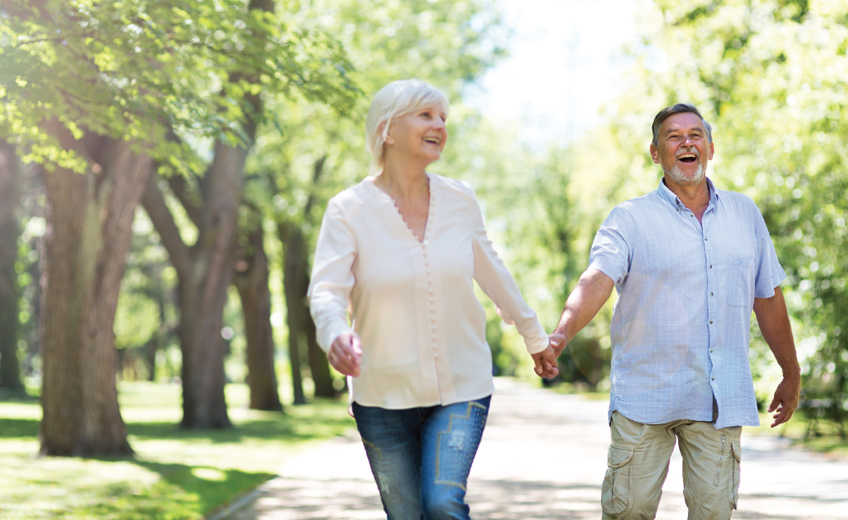A previous article discussed how to age gracefully, leading to further debate on how to improve longevity and quality of life in tandem. Wellness and good health are more valuable than wealth. We cannot buy better health but we can acquire it through a tailored personal approach. Although some health factors such as inherited genetics may be beyond our control, there are other ways to improve health and longevity, such as maintaining a strong physical condition and taking steps to avoid acute or chronic illnesses. Clinical studies confirm that those who are health-conscious live longer than the general population, and research has isolated many of the factors that can add years to our lives. Following this advice could well help you live to a hundred. A review of the key points in these articles may take four or five episodes to complete, so please bear with me and stay tuned!
What is ageing?
Ageing is a change in the structure and function of our body’s internal organ system through a continuous process of deterioration. Thus it has a negative impact on bodily systems including reproduction and speed of response to environmental factors, ultimately leading to death. Ageing is a natural process in all living organisms except bacteria.
Explained by biochemical theory, which relates to the level of molecular structure, ageing is the metabolic process of free radicals destroying DNA (genetic material) through programmed cell death in processes called apoptosis and autolysis. Cells with high metabolism and oxidation consume more energy and have shorter life spans.
Mechanisms of bodily deterioration
Our patterns of bodily deterioration have a direct impact on our quality of life. Theories of cell biology tie ageing to cell propagation, the hormonal system and genetics inherited from ancestors, as well as the free radical damage occurring in our bodies every day, nutrition and diet, glycosylation of proteins, deterioration of immune function and lifestyle factors such as exercise, environment, body and soul adjustment, mood and temper control, and stress management. Collectively these go some way to explaining the ageing process in all living things, and understanding these processes can lead the way to a long life.
Deterioration in bodily systems is complicated but affects the life spans of humans and animals. From data collected from around the world, we can collate some interesting information regarding aging:
- On average, women live five to six years longer than men.
- Those who enjoy a pleasant mood and temper with less stress live longer than those who do not.
- Those with appropriate or slightly lower body weight live longer than those who are overweight and obese.
- Those who are thin and eat less will live longer than those who overeat, are lazy and sleep too much.
- Those who pursue light work live longer than those with a heavy workload.
- Those who eat more vegetables, macrobiotic foods and less meat, as well as those pursuing a religious path, tend to have better health and live longer than those who do not.
- Those with a slower heart rate live longer than those whose pulse is high.
Practical advice towards being a centenarian
To effectively delay physical deterioration and ageing, there are recommendations we can follow as early and faithfully as conditions allow, such as being disciplined in managing our lifestyle and what we eat and drink. Here are 10 ways to enjoy a good quality of life and live longer, adapted from advice by the US National Aging Institute:
- Food intake should be varied, comprise all essential nutrients and be commensurate to a body’s needs, and should include cereals, rice, beans and nuts, vegetables and fruits that contain vitamins, minerals, calcium, fibre and antioxidants.
- Being physically active is essential, including regular exercise appropriate to a body’s needs.
- Undergo a physical check-up at least once a year; for seniors, twice a year is recommended.
- Refrain from smoking and taking drugs.
- Reduce alcohol intake, although as previously discussed a daily glass or two is allowed.
- Try to avoid accidents, especially falling; be focused when driving, walking or running.
- Get sufficient rest and sleep and try to reduce long work hours.
- Keep the body from overheating or extreme cold and avoid toxic and chemical substances.
- Be optimistic, volunteer when the opportunity arises and try not to separate or alienate yourself from family, friends and the surrounding community.
- Watch your mood and temper, have fun, avoid bad karma and try your best to avoid dependencies.
Ageing is a process of natural deterioration that can be explained by many factors such as genetics, hormones, high-calorie foods, antioxidants or our living patterns. If we take good care of ourselves ─ by avoiding risky behaviour that can harm our bodies, eating well and keeping body weight in the recommended range, pursuing exercise proportional to body strength and thus reducing risk of cardiovascular problems, cancer, diabetes, arthritis and other debilities ─ we can become centenarians. We should also try to stabalise our temper and mood and adopt these recommendations as early as possible to guarantee a good quality of life and the luxury of time in which to age gracefully.
































































































































































































































































































































































































































































































































































































































































































































































































































































































































